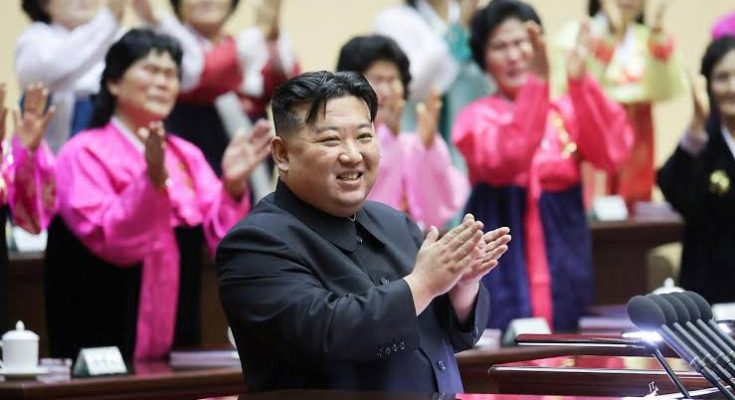In a bid to reverse its declining birth rate, North Korean authorities are intensifying efforts by imposing severe punishments on medical professionals who carry out abortions and vendors distributing contraceptives, according to a recent report from Radio Free Asia (RFA). This crackdown comes amid concerns over the country’s decreasing fertility rate, which has dropped to 1.8 births per woman—well below the replacement level of 2.1 required to sustain the population.
A source from Ryanggang Province, which shares a border with China, told RFA that a senior doctor from Paegam County Hospital was recently put on trial for conducting an illegal abortion that resulted in the death of a woman. The doctor, who had been performing these procedures in secret, was sentenced to five years in prison, with his trial being held at a local medical university hospital. The doctor had reached retirement age this year, making the case a symbol of the growing pressure on North Korea’s healthcare sector to conform to the regime’s stringent reproductive policies.
In a separate case, an obstetrician-gynecologist from Unhung County was sentenced to three years in prison for carrying out a similar illegal abortion in 2021. Both doctors, according to the anonymous source, conducted these procedures in their homes in an effort to avoid detection by authorities. They were allegedly charging around 30,000 North Korean won ($33) per abortion, roughly equivalent to an average month’s salary—enough to buy about 10 pounds of rice.
The government has attempted to discourage such practices by raising the salaries of doctors to make side jobs less attractive. However, the demand for abortions and contraceptives has persisted, leading medical professionals to take significant risks for additional income.
Authorities are also targeting vendors who sell contraceptives, another source told RFA. In July, two contraceptive sellers in the border city of Hyesan had their stalls confiscated, and in late August, three more vendors were heavily fined and permanently banned from conducting business. The increasing crackdown suggests that North Korea’s government is determined to enforce its pronatalist policies at all costs.
The North Korean Embassy in China has yet to comment on these reports, but the country’s stance on reproductive rights is deeply entrenched. Abortions were first banned during the “Arduous March,” a period of severe famine and economic collapse between 1994 and 1998 that left the country in demographic decline. As the economic situation worsened, the government sought to control the population by limiting access to abortions, a policy that remains in place to this day.
North Korea’s demographic crisis mirrors similar issues faced by neighboring countries, including South Korea, Japan, and China, where fertility rates have also plummeted. Yet, North Korea faces an even greater threat from this trend due to international sanctions that hinder its access to advanced technology and industrial machinery. These sanctions, imposed over Pyongyang’s missile and nuclear weapons programs, force the country to rely on outdated production methods, making population growth critical for sustaining its labor force.
In a speech at the fifth National Congress of Mothers late last year, North Korean leader Kim Jong Un identified the country’s falling birth rate as a pressing social issue. He appealed to women to take on the responsibility of reversing this trend, framing larger families as a patriotic duty. However, experts argue that without significant economic reforms to ease the financial burden on families, Kim’s appeal may fall on deaf ears.
Analyst Khang Vu, writing for the Lowy Institute’s online publication The Interpreter, suggested that North Korea’s rigid economic system—dominated by inefficient government jobs and limited private sector opportunities—poses a significant barrier to reversing the decline. Instead of addressing these systemic issues, the regime has opted to crack down on the black market and increase state control to eliminate so-called “anti-socialist” behavior.
While North Korea’s policies have yet to yield substantial results, the country’s leadership seems unwavering in its pursuit of demographic recovery, even if it means punishing its own medical professionals and citizens.




